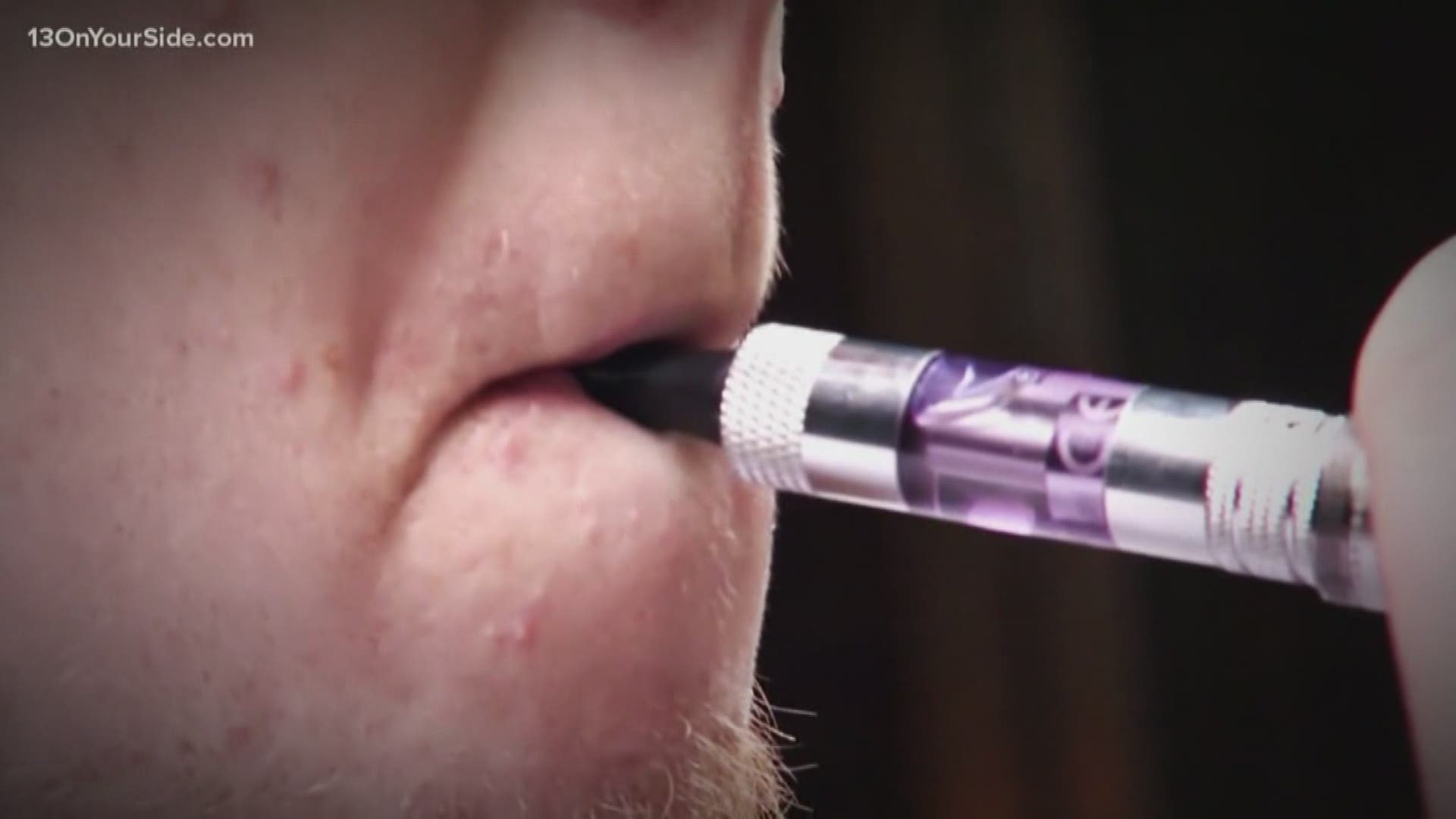Investigators still don't know why hundreds of people have gotten sick and some people have died from vaping.
Some were vaping with nicotine, THC or both.
However, the Michigan Department of Health and Human Services says one Michigan lung injury patient was exposed to vitamin E acetate. That's a common ingredient found in skincare products. However, it's not intended to be heated and smoked or vaped.
The state requires testing for well over 100 chemicals prior to dispensaries selling products. This is to ensure that the consumer has access to safe, lab-tested products. But vitamin E acetate is not one of the ingredients required to be tested.
►View the rules for testing marijuana products in Michigan here.
"The state currently doesn't require that vitamin E be tested, while we're totally capable of doing that kind of testing, a lot of the compliance testing or anything that's reported to the state is only for what they're requiring currently," said Iron Labs Lab Director Joseph Rutkowski.
Iron Labs is one of a handful of cannabis testing labs in Michigan.
"We should be purchasing stuff that's gone through the proper channels, has been shown to be safe for consumption and isn't just some random thing that someone could have diluted with household chemicals," Rutkowski said.
Although the cause of these lung injuries is not yet known, the majority of these patients report using THC products.
"A lot of indication has shown that it's due to maybe a vitamin E that's added to dilute products," Rutkowski said.
Rutkowski says many times, black market companies will add this compound to sell more product.
"The vitamin E could potentially increase shelf life, making it stable on the shelf, however it breaks down into toxic impurities when its vaporized," Rutkowski said.
Other toxins can be produced when the vaping temperature gets too hot.
"If that vaping temperature is too high, then these toxic byproducts are created," Rutkowski said.
He said it's important to know where your product is coming from before consuming it.
"When you purchase something from the black market or outside of one of these licensed dispensaries or provisioning centers, you're taking a risk and there's no reason to take a risk," Rutkowski said. "We've seen a lot of bad consequences from folks who are taking risks."
One patient in Michigan reported using a THC cartridge from Dank Vapes, which tested at 23% vitamin E acetate.
"Out of state packaging companies that are trying to do this — they're trying to go around the law and around the legitimate ways of doing business in this industry," Rutkowski said.
According to a report by the Associated Press, Dank vapes, an underground company, is not a legal tested brand. It's a name on a box or cartridge that's easily purchased online and used by illicit producers to lure customers.
We contacted Dank Vapes but were unable to reach anyone for comment.
"If it's not in actual packaging indicating that it was tested according to the state requirements, I wouldn't purchase it," Rutkowski said.
The cause of these nationwide lung injuries hasn't been determined, but one hypothesis being investigated is that contaminants in THC vapes, including vitamin E acetate, may be related to the outbreak.
The state doesn't test for vitamin E acetate in its marijuana products as of now; however, in a statement by the Michigan's Licensing and Regulatory Affairs, spokesperson David Harns says, "While vitamin E acetate is not currently prohibited, we are working closely with our partners in public health to determine the cause of the illnesses related to vaping and decide if any changes are needed to further protect patients and consumers."
Other headlines from 13 ON YOUR SIDE:
RELATED VIDEO:
►Make it easy to keep up to date with more stories like this. Download the 13 ON YOUR SIDE app now.
Have a news tip? Email news@13onyourside.com, visit our Facebook page or Twitter. Subscribe to our YouTube channel.


